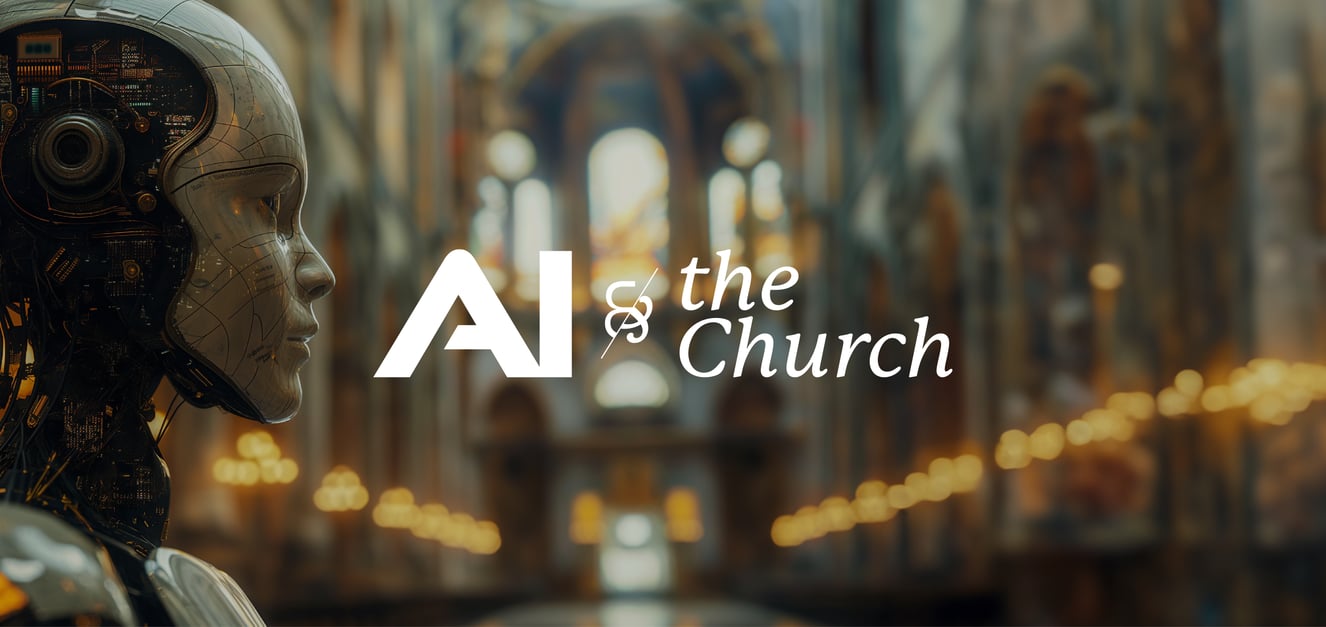February 28, 2024 Artificial Intelligence (AI) for Church Communications Leaders
How does AI affect church communications leaders? Our account directors discuss the good, the bad and the unknown of artificial intelligence.
In order to assess how artificial intelligence is affecting those in the church communications world, we decided to ask our team how it's going in their space.
In this series on AI, we're asking our team some of the practical as well as bigger picture questions for how technological developments are affecting their work and the churches we partner with.
This Q&A puts Fishhook's Account Directors, Kyle and Justin, on the spot. Let's see what they had to say!
Part 1 - The Bigger Picture
In what ways can churches use AI to further their missions?
Kyle: AI is a great tool to use when you're stuck or need to help generating ideas. For example, if you want some ideas on engagement posts to use on social media that support your sermon series, feed ChatGPT (or similar AI tool) your series overview or specific sermon outlines. Then, share the type of response you are trying to get from your audience. Do you want playful responses? Reflective responses? AI can give you lots of ideas for questions that will support your existing content.
How do we make sure to “humanize” it all so that we aren’t just robots?
What potential pitfalls of using AI should comms leaders address with their teams?
Part 2: AI In Your Role
In what, if any, ways are you currently using artificial intelligence?
Justin: I use it to help think through ideas for community engagement for specific audiences. I have found that when I plug in specific details about the makeup of a congregation, what I've learned about the community at a specific church and what the target audience is for the congregation that it produces some great ideas to build on.Practically, what are ways you see AI in communications being helpful in a church’s context?
Justin: Many churches struggle to create regular content that helps resource their congregation. Taking sermon manuscripts and converting them to blogs is a really smart use of AI. It resources your congregation and community and it helps with the health of your websites SEO which helps you connect with more audiences.
Social media planning can be one of the more challenging tasks for any church leader. For churches that don't have a communications leader specifically, using AI to provide an outline of social media post ideas and captions is a really smart and efficient way to develop social media plans. Social media typically isn't effective when it's not well-planned, so using AI can be very beneficial for this!
Kyle: Repurposing existing content to fit another medium is a great use for AI. You can use the weekly sermon to generate prayer prompts for the all-church email, discussion questions for a podcast, or blog post ideas to support your sermon series idea. Churches are already producing great content every week through sermons, so making good use of that content in other ways outside of the Sunday experience is a creative way of using AI.
If AI could help you with one thing, what would it be?
Kyle: From a communications leader perspective, I would reiterate that AI can be used as a tool to generate ideas. Especially for the times when you feel out of gas or strapped for time.
Do you think your comms leader role is enhanced or threatened by the current state of AI?
Justin: Ministry is relational no matter what your role is. As soon as it is not relational, it's not ministry, so using AI should only enhance the work of a communications leader. It must always be used with specific context, people, mission and values in mind. It can be a great resource to expedite the work of every communications leader if it's used in that way!
Kyle: The communications leader's role can be greatly enhanced by AI if used responsibly. It is another tool at the Church's disposal to help people experience the love of Christ.
Now it's your turn. What do you think about artificial intelligence in church communications?
Our team would be happy to chat more about how to use AI in your role, how to set AI guidelines for your staff and everything in-between.
Written by Aidan Wilkins
Digital Specialist
